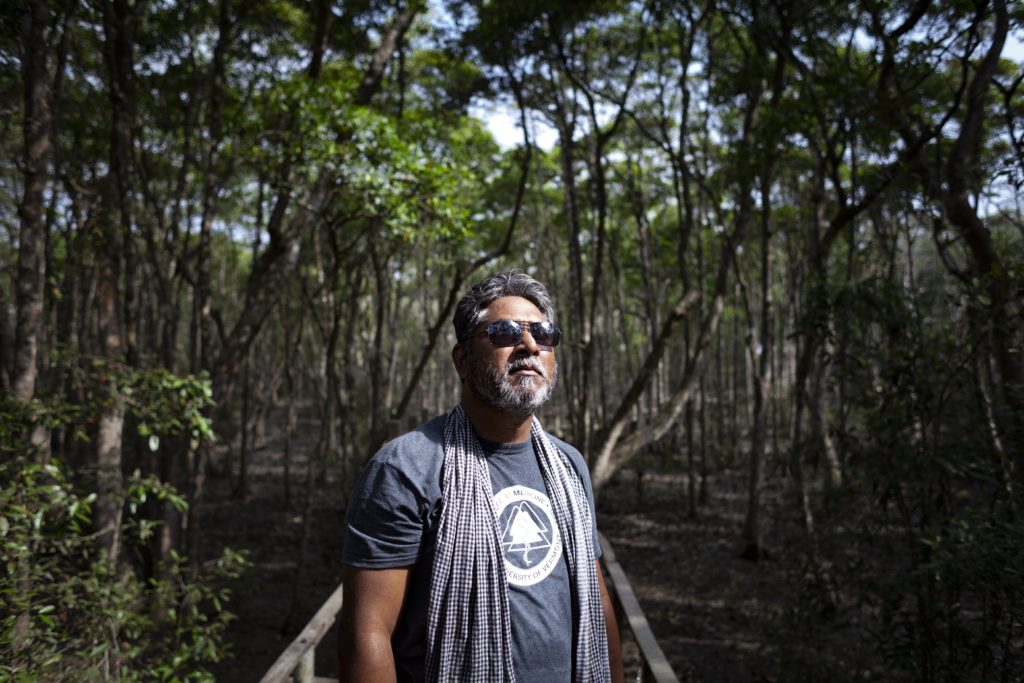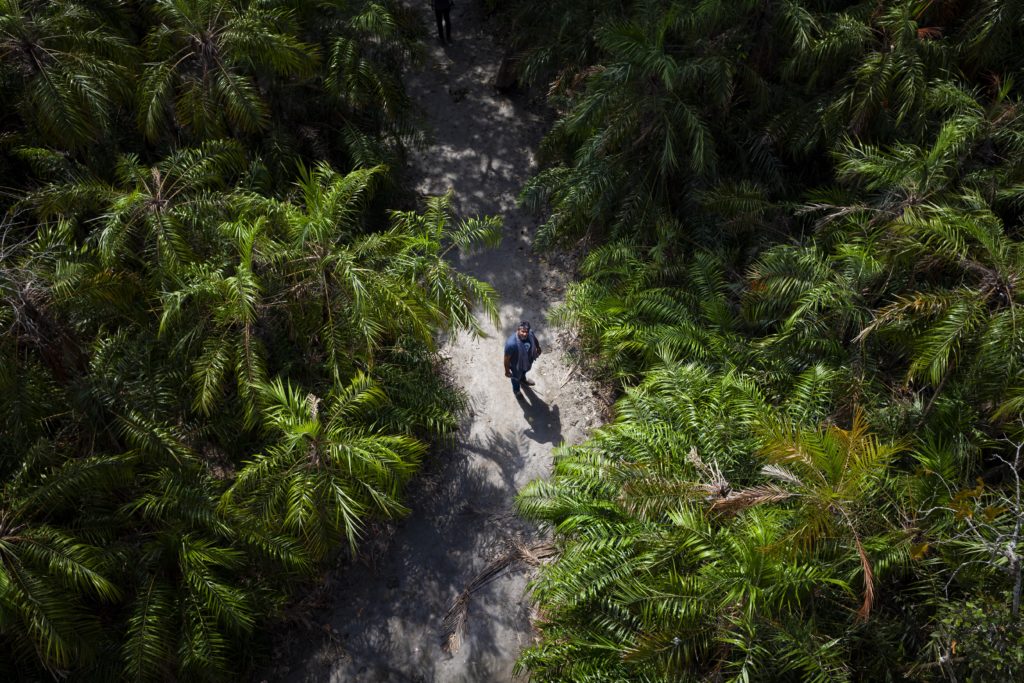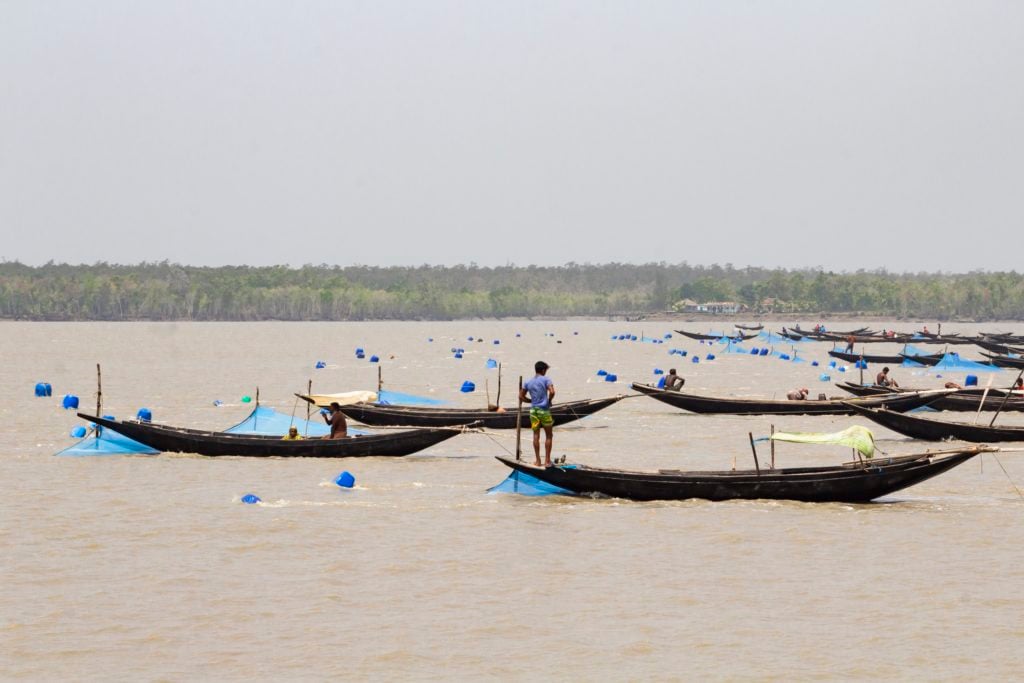Battling for Bangladesh’s Waters and its People | Sharif Jamil, Buriganga Riverkeeper
By: Ellen Simon
Sharif Jamil leads with “a level of irrational fearlessness that comes from doing the right thing.”

By Ellen Simon.
Photos by ©Farhad Rahman, courtesy of Culture Trip.
When the water reeked and the villagers had armed to destroy the fish-food factory that was fouling their canal and making their cattle sick, someone thought to call Sharif Jamil.
The urgent call in 2010 came from a regional politician, Zakir Ashim, visiting Ektiarpur village in Northwest Bangladesh, where the factory was pumping raw waste into a canal, making the water undrinkable.
The people had appealed to local politicians; the politicians had done nothing. The people had formed a human chain on the local highway; the police had pulled them apart. Now they were preparing to rip down the factory with hammers and shovels.
The factory owners were powerful, well-connected, unscrupulous. If the villagers destroyed the factory, the factory owners might destroy the village. The politician’s call to Sharif was as much a plea as a request. Come, and come right away!
Sharif drove himself, as he always does. Kidnappings in Bangladesh are rampant. If he’s in the driver’s seat, he knows if he’s being followed, and he can decide what to do if another car rams his Toyota Probox wagon from behind. He arrived around midnight, after a four-hour drive, and found a crowd of about 5,000 people on the playground outside the village mosque.
Sharif listened to them, then he spoke.
“Give me one month of time,” he told them. “Do not take the law into your own hands. I will stay tonight; I will talk to the people tomorrow. Don’t go for any violence.”
The restive crowd listened respectfully. Eventually, he convinced them. Sharif got back into the driver’s seat to search for a place to rest. But a man of about 80, dressed in a traditional panjabi, stood in front of the car, his thin body lit by its headlights. The crowd stood on either side of him. He was weeping.
“Why did you stop us?” he demanded. “We will be dying one year later, two years later. They will evict us anyway. Why did you talk the young people out of it?”
Pollution from the factory had cut his rice yield from 120,000 kilos a year to 1,200, he tearfully told Sharif. But his fall into deeper poverty, his hunger, wasn’t the worst of it. The worst was what had happened to his daughter. He’d found a good man for her to marry, which was no easy task for a poor father. But when men from the groom’s family made a traditional visit to his family’s home to present her with a ring, the stink of the water polluted by the factory drove them away. The family canceled the wedding.
“Why did you talk the young people out of it?” the old man in the dirt road asked again.
THE FLOODS ALWAYS COME
Floods are among 46-year-old Sharif’s earliest memories. Bangladesh, which separated from Pakistan in 1971, is part of the largest active delta in the world, where the Ganges, the Brahmaputra and the Meghna Rivers meet the Bay of Bengal. This is a nation on a floodplain — two-thirds of the land is less than two yards above sea level. (Think Holland, with no dikes.) As a result, Bangladesh is familiar with catastrophe. One-quarter of its land floods every year, and every five years or so floods cover 60 percent of it. In 1998, the floods lasted for two months and left 30 million people homeless.
“Every monsoon, my mother would be taking me on her chest and waiting for the river to flood,” Sharif recalls.
His strict father refused to let him play with the poorly behaved, slang-talking village children. At the time there were few schools. His mother cared for neighborhood children during the day, and his parents later opened a free school for the village on land granted by the government. Named for his sister, Jamina, the school was built by volunteers out of bamboo and sticks.
Amid endemic lawlessness and corruption, Sharif says, “I saw myself how hard life was for my parents, because my father was an honest man. But,” he adds, “this is how I got to know about working together and working for the nation.”

Sharif, now with a wife and two sons, grew up along with the new country of Bangladesh, a nation that cannot tell itself uncomplicated stories about good guys winning. Mujibur Rahman, its first elected prime minister, was a hero of the 1971 war of independence, but devolved into an autocrat who was assassinated, along with most of his family. The nation endured four coups during its first decade. And though it now holds elections and seats a parliament, democratic stability still eludes it. Caretaker governments, suspiciously large landslide victories for the ruling party, and jail terms for opposition leaders remain a way of life.
“I saw myself how hard life was for my parents, because my father was an honest man. But, this is how I got to know about working together and working for the nation.”
From the time he was a young volunteer taking notes at meetings of Poribesh Andolon, one of Bangladesh’s pioneering environmental organizations, Sharif knew that he wasn’t starting out on the path of a peaceful, uncomplicated life. But it led to his becoming a leader, by 2003, in the fight against environmental degradation, focusing on the Buriganga, the river that flows through the crowded, smog-choked capital of Dhaka. He became Buriganga Riverkeeper in 2009, the first member of Waterkeeper Alliance in Bangladesh. His first priority was documenting the main threats to the river. In a way, that was easy, because the main threat to the Buriganga was existential: Would the river continue to exist at all? “If the water is not there, there is no question of swimmable or drinkable,” says Sharif.
THE PRICE
The echo of the old man’s plea in the dark rings everywhere along the banks of the Buriganga.
Dhaka is industrializing at a head-spinning pace. According to World Population Review, the number of residents, which was six million in 2002, grew to 14.4 million in 2018. The city now has a density of 19,447 people per square mile, and the Environmental Justice Foundation reports that one-to-two thousand new residents arrive daily.
The new residents who find work end up in textile and garment factories. Bangladesh has become the second-largest garment exporter in the world, after China, over the last decade.
Per capita income increased 150 percent during that period, rising to $1,751 a year for 2017-2018, pulling 16 million people out of poverty. But the nation has paid for growth in blood. The industry expanded with little regard for worker safety. A 2012 fire at Tazreen Fashions factory in Dhaka killed 112 people, a toll far surpassed the next year when the collapse of the Rana Plaza and its clothing factories killed 1,100, after factory owners had ordered the workers to return to their jobs the day after structural cracks were found in the building. The nation has also suffered dire environmental destruction. The Buriganga remains one of the world’s most polluted rivers, biologically dead.
With no room left in Dhaka for newcomers — or new factories — both families and businesses have expropriated the Buriganga riverbank, building shantytowns on platforms over the river and sometimes fortifying those platforms using garbage as landfill. This encroachment is demolishing the Buriganga’s banks and narrowing its channel.
The river has long carried Dhaka’s untreated sewage; now it also carries the effluent from its textile and garment factories. Time magazine reported in 2014 that the Bangladeshi government estimates that about 21,000 cubic meters of untreated industrial sewage are released into its waters every day.
When Sharif started his work in 2003, the textile industry along the Buriganga already included 250 tanneries piping toxic dyes directly into the river. Sharif mobilized the city’s population to protest the tanneries. Finally, in 2017, a third of the tanneries agreed to move to a location with a wastewater treatment plant, 30 miles upstream, but, according to Sharif, the plant doesn’t function properly and the water isn’t being treated consistently. “Buriganga gave life to Dhaka,” Sharif says, “and Dhaka killed it.”

THE MOST DANGEROUS FIGHTS
It’s risky to take on industry in a rapidly developing nation, and even riskier to take on the nation’s security forces. But that’s what Sharif did.
Bangladesh’s anti-terrorism force, Rapid Action Battalion-10, is known for committing extrajudicial killings and causing disappearances. In 2012, after it had applied for land to build its offices, the District Administrator near Lalbag, on a channel of the Buriganga, allocated a spot that would have encroached on the river, destroying seven acres of its banks. Sharif collected data about the site and mobilized protests that made front-page news. He met with government ministers and members of parliament. Eventually, he wore everyone down. A member of parliament agreed to allocate land for Rapid Action Battalion-10 near the central jail, away from the river.
“He is endowed with a rare gift of leadership,” says Sultana Kamal, a lawyer, author and activist who is a veteran of the country’s 1971 war for liberation. “He’s mobilized the public, and, along with them, acted vigilantly to prevent river grabbing. His actions resulted in the government taking up the policy of recovering the major rivers of the country from their grabbers.”
Sharif has picked many other dangerous fights. He’s led a movement to halt construction of new coal-fired power plants. He’s fought a proposed 1,320-megawatt coal-fired power plant in Rampal that threatens the Sundarbans, the world’s largest contiguous mangrove forest and a UNESCO World Heritage Site, as well as a second phase involving the construction of two 660-megawatt plants.
By fighting the electricity industry, Sharif is seen as threatening Bangladesh’s ability to become a developed country, says Tonya Bonitatibus, who leads Savannah Riverkeeper:
“Fighting the power industry, you become an enemy of the state,” she said. Sharif’s job puts him at risk of death in a serious way every day. When you truly believe, and you have the power to do something about it, you have a certain strength about you. He has that strength, this level of irrational fearlessness that comes from knowing you’re doing the right thing — and if it takes your life, it does. There’s a peace that goes with that.”
Kamal adds: “His role as a Waterkeeper entails harassment, financial insecurity, and even threats to his life. Sharif, however, has stood resilient.”
Sharif has remained resilient not only when the fight has been dangerous, but even when victory seemed improbable.
An example: He’s been working since 2007 with an indigenous community on the India-Bangladesh border that grows betel leaves, which are primarily used as wrappers for areca nuts and tobacco. The leaves grow in forests, but a nearby tea plantation had been trying for years to evict the indigenous people and cut down the trees that bear these leaves. In 2008, Sharif got a call informing him that workers from the tea plantation were razing trees and attacking villagers. Sharif traveled to the site with two friends, a military officer and the officer’s wife – in a four-wheel-drive vehicle, since the village was 15 kilometers from regular road service. Nonetheless, as they drove closer to village, their car got stuck. It was dark; his companions grew worried, but Sharif was unperturbed.
Then, atop the highest hill in the vicinity, lights appeared, as if hundreds of lightning bugs had taken flight.
“Women came, children came; everyone had a stick and a torch light,” Sharif remembers. “I said, ‘They are coming to take us to the village.’” Sharif and his companions managed to restore peace, at least temporarily.
A decade later and the indigenous people in the village are still fighting the hired thugs from the tea plantation. But the beauty of that moment stays with Sharif. “Sometimes movements get momentum, and it feels different,” he says. “That is why I’m doing this.”
STORIES WITHOUT END
If this were a Hollywood script, the story of the crowd beside the mosque at midnight protesting against the fish-food factory would have a satisfying ending. The villagers would organize, they’d demonstrate, they’d sue; there would be a courtroom showdown in which a shaft of sunlight falls on the handsome profile of a charismatic young lawyer. The people would prevail. The water would get cleaned up. The old man’s daughter would get married. The closing credits would roll over scenes from their wedding.
But what really happened is this: The Department of Environment shut down the factory, but the factory reopened. Then its owners, government administrators and Sharif sat down together. The owners pledged that they would build an effluenttreatment system, and did so. But sometimes they use it, and sometimes they revert back to discharging untreated waste into the waters that are the lifeblood of the village. Nine years later, Sharif and the villagers are still fighting the same fight, against the same foe.
There is a Bangladeshi word with no English equivalent that may best describe such frustration. The word is obhiman, one meaning of which is “to torture oneself for love.”
When Sharif Jamil arrives alone at midnight to calm an angry crowd, he comes out of love — for his country, its people, and its waters. His vocation, at its core, is obhiman. Each day he gets up, he takes every call as it comes, and he tortures himself for love.
Ellen Simon is the Advocacy Writer at Waterkeeper Alliance.